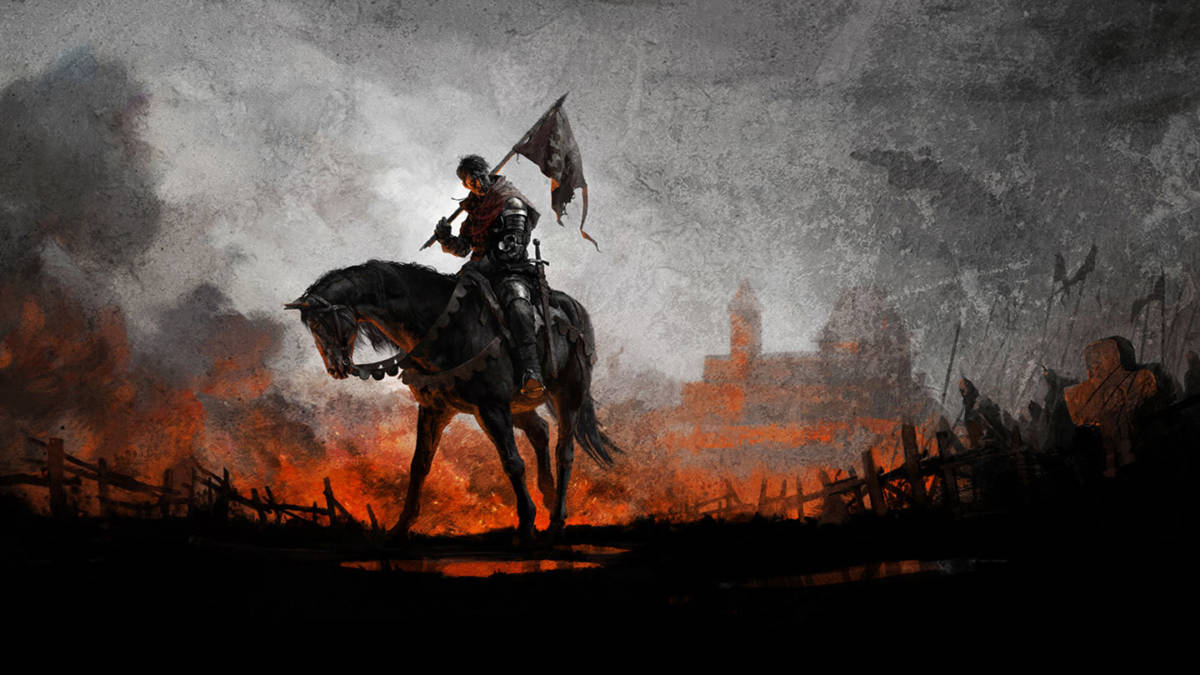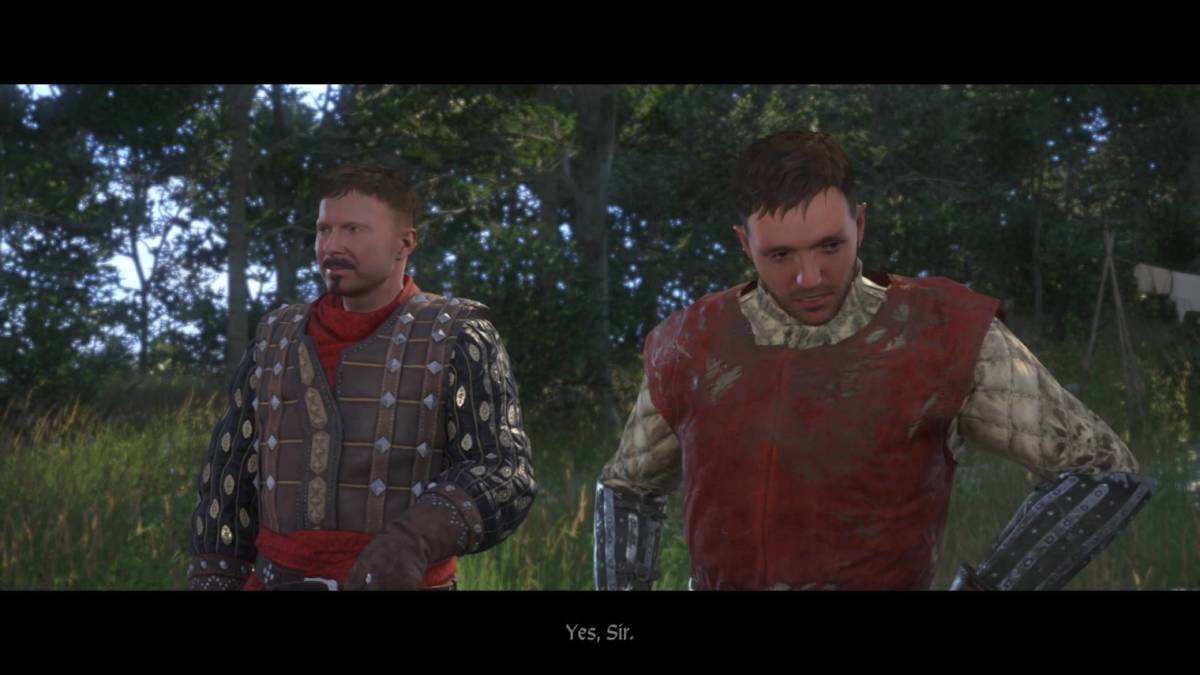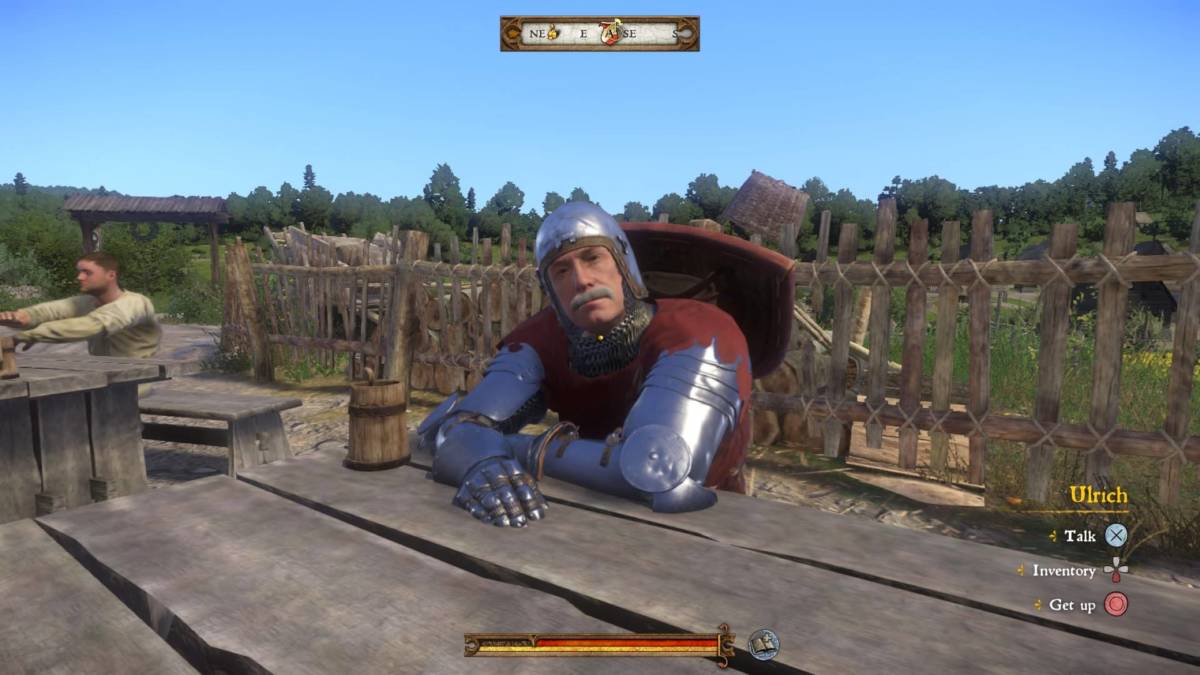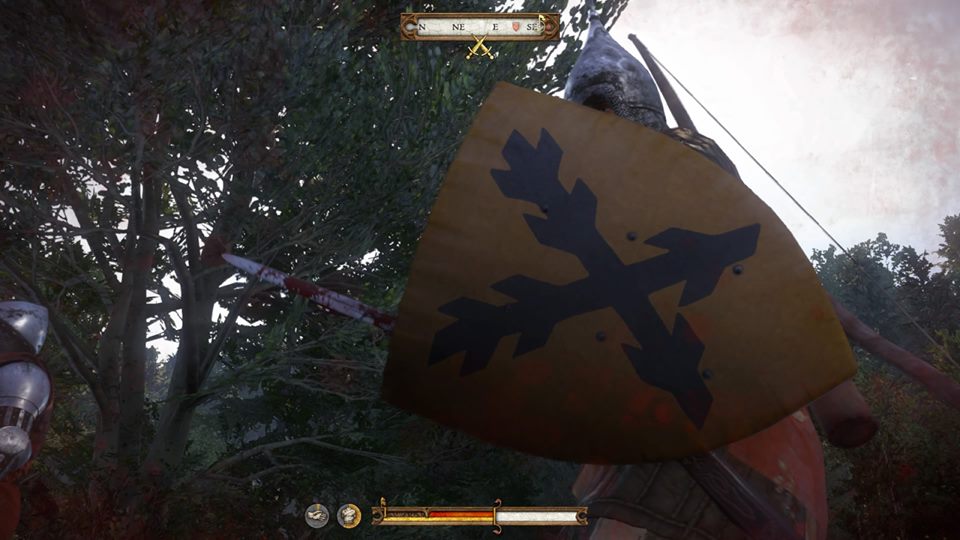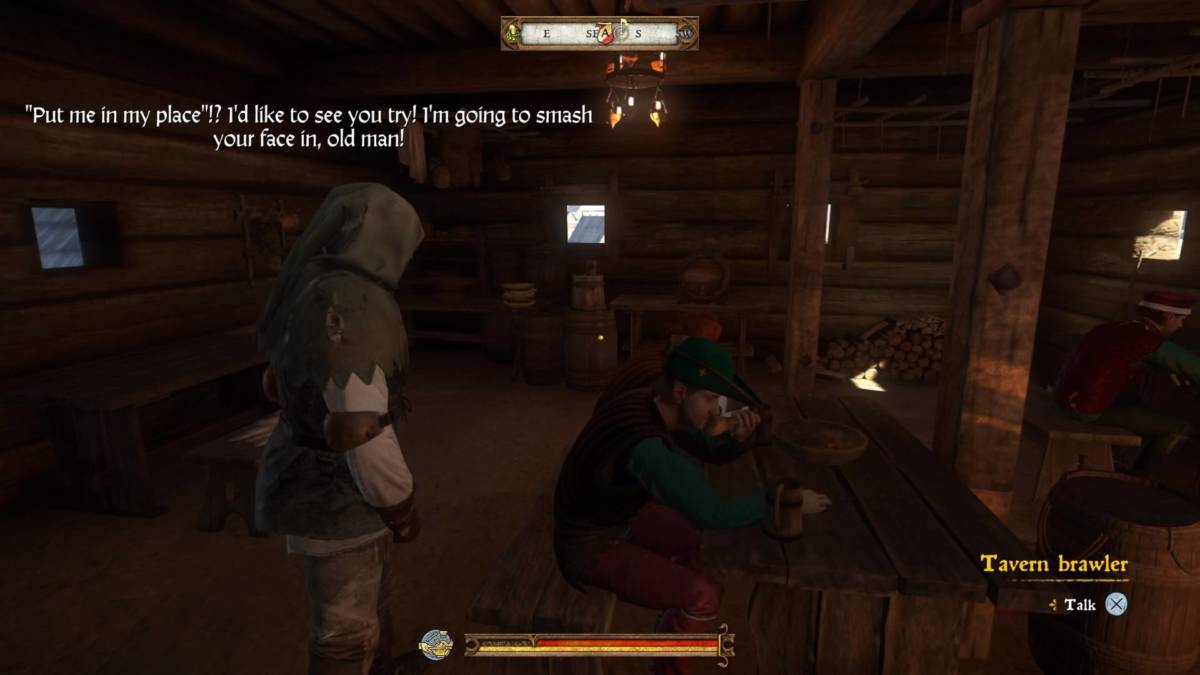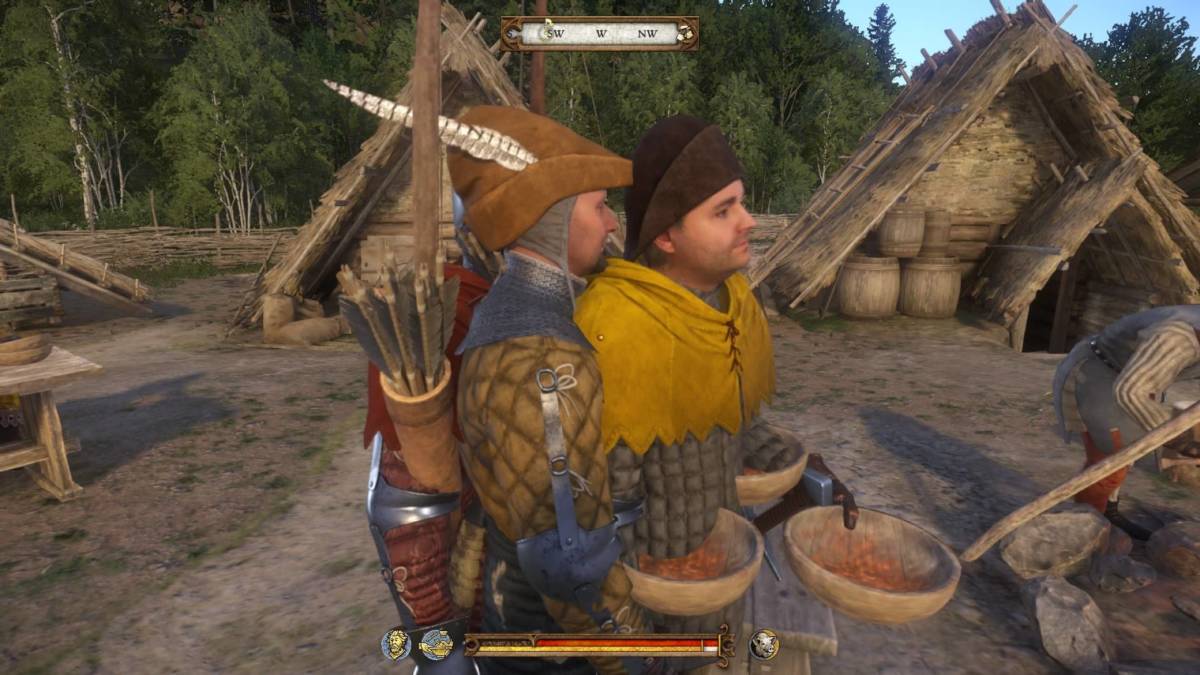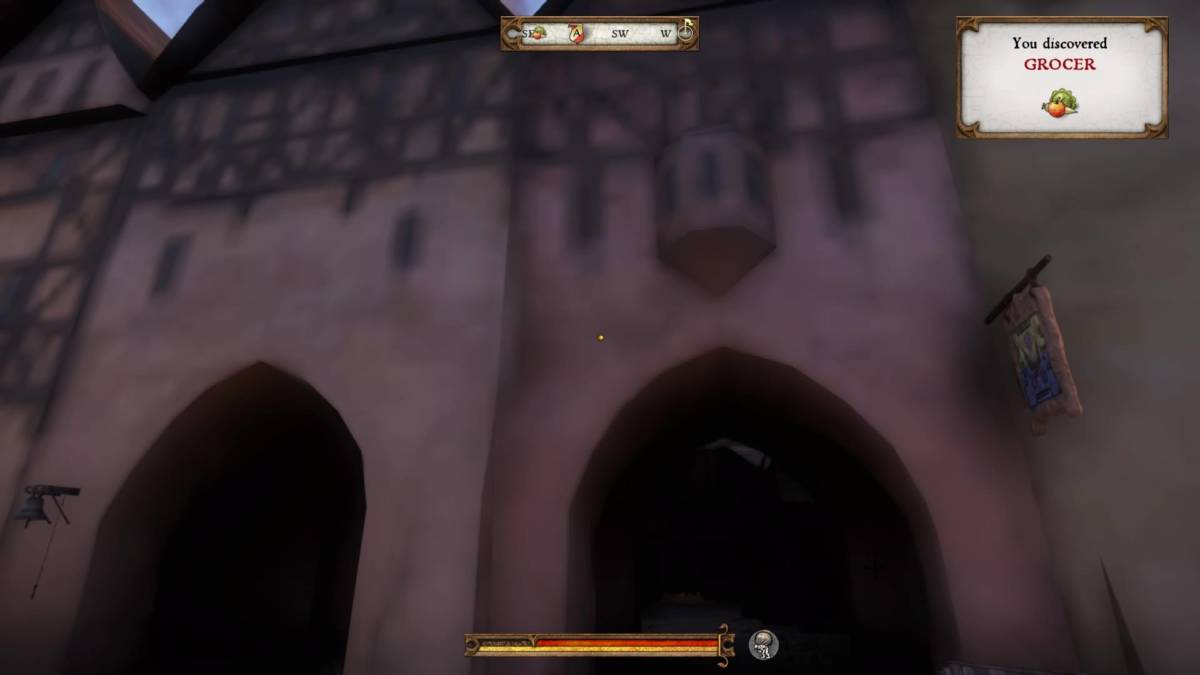Developer: Warhorse Studios
Publisher: Deep Silver
Platform(s): PS4, XB1, PC
Review code provided by publisher
I don’t think I’ve had as intense a love/hate relationship with a game than the one I shared with Warhorse Studios’ Kingdom Come: Deliverance over sixty hours of gameplay. When it was at its incredibly immersive best, it was deserving of any throne, sometimes even more so than its better-funded peers. When it was at its worst, however, I just wanted to put it in the stocks and pelt it with tomatoes.
Kingdom Come: Deliverance is a game of staggering ambition, a conclusive riposte to the argument that single-player games are dying a death. Sales to date continue to show that there’s a huge market for entirely solo experiences — as much as the biggest publishers may want to “pivot” to “live service” games, they certainly aren’t going away. Big studios may be reluctant to delve into their coffers to invest in an open-world offline RPG because of past failures (read: selling millions of copies but not enough millions), but those failures are rooted in their own myopic attempts to satisfy shareholders while cranking uninspired fare off of the factory line.
Kingdom Come is not one of those games. For all its faults (of which there are many), its heart cannot be denied, the passion seeping through every one of its nuanced and unconventional pores. Certainly, its quirks are likely to turn away some people, but Kingdom Come is an unapologetically old-school RPG, one which devours any pretense of a social life you might have had and has you crunching the numbers like a rabid Wall Street salesman.
You play as Henry, the son of a blacksmith who suddenly finds himself embroiled in a war in one of the regions of the medieval Czech Republic, known as Bohemia. Trailers and even the game’s Steam page give away the plot’s early twist, but I won’t do so here, just in case anyone is looking to go into the game blind. Once the smoke clears, Henry is at the beck and call of the powerful lords of the region, but he’s no Dragonborn. He’s about as far from a mythical hero as you could get — he’s you or I.
Henry’s been the subject of some criticism as an unbelievable protagonist, but I think that’s entirely the point Warhorse Studios were trying to make when they hired Tom McKay. Without wanting to offend the English actor, he doesn’t fit really fit the archetypal hero mould. He isn’t blessed with a silvertongue or conventional good looks; he probably couldn’t sell you a bottle of aftershave, either. Really, he’s just a normal guy, which makes him the perfect antithesis to the copy and paste protagonists we see in so many big games.
One of the biggest selling points of Kingdom Come: Deliverance is that it’s a totally grounded open-world RPG without any dragons, spells, or scrolls. You won’t be able to win the day on your own, or even realistically stand much of a chance against multiple attackers. It’s just you, your sword, and your wits. Oh, and maybe an alcohol problem.
Drinking is a large part of Kingdom Come with there even being a trophy for becoming addicted, though I can’t remember anyone giving me a certificate of achievement for doing so in real life. Rather than just making Henry a little wobbly and the screen a bit blurry, different drinks can have different effects. Mostly, alcohol is used to buff your charisma for conversations, which can open up new quest opportunities if your level is high enough. What you’re wearing and your reputation in the region is another important facet. If you look like shit and even smell like it, nobility will turn their nose up at you but the common folk aren’t quite as easily deterred. It’s such a unique and interesting feature that I can’t remember seeing elsewhere, something which the game is full of.
There are so many small mechanics within Kingdom Come: Deliverance that amount to a hulking beast of an RPG when they all come together. Your standard equipment wear and tear is present, though it’s far more lenient than something like Breath of the Wild. Before they become completely useless, you can either fix them through kits or take them to smiths. The more exotic the gear, the more it costs to repair, so you may want to spend plenty of time increasing your smithing skills. I am not ashamed to admit that I spent a long time at a grindstone, buffering and cleaning my sword until it was in peak condition.
There’s a sometimes overwhelming amount of micro-management in Kingdom Come, which you may revel or drown in. I was the former, furiously swapping shoes around until I found the exact right pair to not only buff my stats but also suit my ensemble. Curiously, there are also survival mechanics, though these aren’t anywhere near as punishing as something like The Long Dark. Henry can go for over a day without eating or sleeping and be relatively fine; food and a place to sleep are also never too far away.
One of the game’s most interesting approaches to realism can be found in its combat. In my first impressions, I had somewhat undervalued the uniqueness of the system. While it still has its drawbacks (multi-man combat remaining a total nightmare thanks to the first-person perspective), it’s something that you really have to learn before you can make a judgement. Considering that Henry starts off woefully underpowered, it’s easy to say that the combat system is to blame when really it’s just you refusing to adapt to it. I have a lot of time for games that teach the player through failure because I am a stubborn arsehole, so I was in my element.
Combat is not too dissimilar to For Honor as a straightforward touchstone: you can attack in different directions based on a compass of sorts while also trying to stay aware of your stamina and the adaptive AI. The combat is yet another example of Warhorse sticking close to realism as you won’t just be able to slice and dice your way through hordes of enemies. Instead, you have to play it tactically, interjecting heavy enemy blows with quick strikes of your own and looking for every advantage possible. You can also fake out opponents by taking a stance before switching it up with an attack from another direction. Eventually, you will learn combos and even how to block an enemy’s attack and immediately return the attack to its deliverer. There’s a slow but seriously rewarding sense of progression: you will never feel as powerful or as skilled as Geralt of Rivia, but you will truly feel like you’ve come a long way from being the young and naive Skalitz boy by the closing credits.
A sentiment that I have to carry over from my first impressions, however, is that archery isn’t all that hot. The lack of a cursor makes it more realistic and it gets easier the more Henry levels up, but there’s so much frustration and so many wasted arrows before you get to that point that it’s hard to really depend on it. It also feels quite lightweight, odd considering Henry readies an arrow like he’s dragging a boulder across continents. With some perseverance, you may find a way to incorporate archery into your playstyle or even make it a large part of your lightweight build, but I simply couldn’t get along with it.
With most open-world games, there’s the storyline and then the real attraction of everything else. However, Kingdom Come bravely puts its story front and center, spinning a tale of class, family, and honour across many branching quests. I must admit that, shamefully, life in the medieval times of Bohemia is a bit of a knowledge blindspot for me, but I was even more shocked to discover just how much I would turn out to be fascinated by it all. There’s a lot to sink your teeth into, so historians and the just plain intrigued are bound to be going far beyond the 100 hour mark, discovering everything there is to discover and soaking up all of its passionately curated authenticity. I did struggle with the American accents and voices that just didn’t fit their characters, however, which, alongside potions, seemed to be really at odds with Warhorse’s ethos.
The more laidback gamer is almost definitely going to love travelling around the game’s relatively small but well-packed map and just embracing the normal life. Theoretically, you could just hunt game or catch fish and then sell them on to help you lead a simple existence. You could work by day and get rowdy by night, visiting the bathhouses for some, erm, intimate washing. Or maybe you just want to amass a small fortune through playing dice? Your path is ultimately up to you, but don’t expect the game to wait around for you to find your calling.
A big feature of Kingdom Come that I don’t feel is getting the attention it deserves is its living world. If the devil is in the details, someone at Warhorse must be a reverend in the Church of Satan. The people of Bohemia go about their daily routines but also adjust to change, which never ceased to impress me. Say, for instance, X dies, Y might then change things up or react to Henry and other people differently. One probably irrelevant and unimportant thing that impressed me nonetheless was when I had to meet someone at a tavern. Instead of going up to them immediately, I just stood away from view and watched him and the other patrons. The patrons heckled the alehouse maid and even ended up getting up in a fight, but what wowed me the most was when the guy I was supposed to be talking to ordered some chicken and started eating it piece by piece. I reloaded from a recent save and checked to see if he did it again, but he didn’t. The dynamism of Kingdom Come is certainly one of its shining stars.
What doesn’t always shine through is Kingdom Come’s visuals, which are more functional than they are jaw-dropping. Sure, there’s plenty of vista porn for anyone who loves to gaze longingly into the distance in open-world games, but not much else really stands out, apart from some of the lords’ absurdly pretty armour. Facial animations are basic but serviceable, though I am one of the few who could get through Mass Effect: Andromeda without many serious quibbles on that front. Character models also regularly reoccur, which is a staple of huge games of this ilk, but they’re especially prominent and common here, making some supporting characters a little flat.
Quest design isn’t commonly broached in RPG reviews, which is strange when you consider just how fundamentally important it is to the hook and allure of any game in the genre. Kingdom Come’s is a mixed bag. Quests can run the gamut from being some of the most innovative I have ever seen –making you become a monk to go undercover in a monastery– to some of the most uninspired — take this to this guy. Not all quests can be killer and there has to be a balance of the basic to make the more “extravagant” quests seem even better, but there are only really a handful of quests that really stand out in Kingdom Come. Still, there’s plenty of depth to the primary quests, which tend to branch out and become more complex than they immediately appear.
It’s a shame, then, that the enjoyment of so many quests is hindered by such an unfriendly save system. If you’re familiar with Kingdom Come’s press since launch, you almost definitely also know that it’s a majorly polarising feature of the game. I appreciate the challenge it’s intended to bring, making the player second guess every decision and give the action higher stakes, but not when it goes hand-in-hand with the game’s often unacceptable performance.
You have many methods of saving in Kingdom Come, whether it be sleeping in an owned bed, drinking a Saviour Schnapps, or autosaving through quest progression, if rather inconsistently. For the most part, however, you will be relying on your Schnapps to save as autosaving is intermittent and finding a bed isn’t always straightforward. You can brew Schnapps through the game’s rather excellent alchemy system, but when you need to find ingredients and the right bench to do it on (and then make sense of the alchemy tutorial), it’s too much for the early goings of an already dauntingly deep RPG. Instead, you will have to rely on innkeepers to sell you Schnapps at high prices, which is a problem when it’s many hours until you have even a respectable amount of money. I appreciate Warhorse are trying to stop save scumming, but in their attempts to incorporate more of a challenge at the same time, they’ve made the game more restrictive and seemingly hostile to newcomers.
The lack of quicksaving also seeks to highlight Kingdom Come: Deliverance’s ugliest habit: crashing and being generally unreliable. On a base PS4, the game crashed four times for me in total, all at the worst possible moments. I had to repeat long, difficult stretches of gameplay and plenty of dialogue because it doesn’t always autosave at logical moments, such as when you’ve completed a major objective or have to start a journey from A to B. If I wasn’t also coming off some of the most insufferable loading times of any game in this generation to find that I had to redo large sections of quests, it may not have perturbed me so much. The loading in Kingdom Come is as persistent as it is invasive, creating long pauses before talking to characters and even trying to look at your map. You can expect to wait for up to five minutes from starting the game from your dashboard to actually being able to play it. That killed my immersion quicker than any American accent.
It’s clear throughout Kingdom Come that Warhorse are paying the price for their ambition. Nothing feels properly polished, evidenced perfectly by a stuttering framerate, frequent texture pop-in and a constant cavalcade of glitches. Some of the glitches I encountered were harmless, like three workers morphing into something from an early Cronenberg movie, but the worst cases threatened to make me forget all of the things I loved about the game. There was that time when I simply couldn’t interact with someone for a quest so I had to just forget about it, the multiple occasions where I would get stuck in a bush and be completely unable to move, and even somehow catapulted across the map when trying to climb up a hill. Bugs go hand in hand with open-world games and we will likely even come across them when we have flying cars in the future, but Kingdom Come takes a leaping frogsplash off the edge of “so-bad-it’s-almost-a-feature” and into just plain bad territory.
Ultimately, your enjoyment of Kingdom Come: Deliverance will come down to two things: your appreciation for intensive, heavy RPG games and your patience. Kingdom Come’s huge scope is in many ways its downfall, its good constantly balanced out by constant failings and frustrating design. Still, when the rough diamond is this damn compelling, it’s almost hard to say no.
Some of the coverage you find on Cultured Vultures contains affiliate links, which provide us with small commissions based on purchases made from visiting our site.
